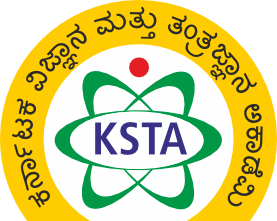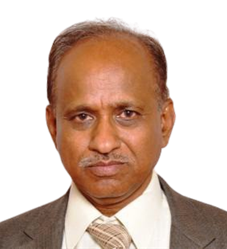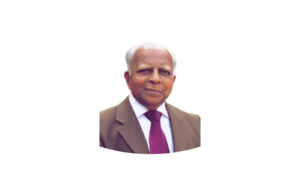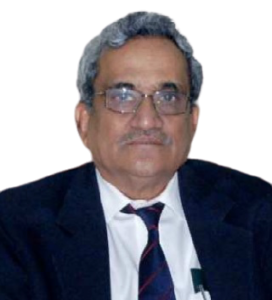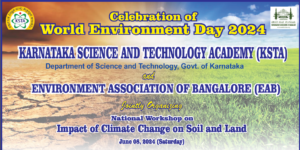Science, Society and Scientific Temperament – Prof. H.A. Ranganath
9 min readIn today’s critical times, the world is looking for a scientist who can find a solution to pandemic COVID 19. It is still possible that scientists find a remedy as in previous episodes of virus attacks. Rastra Kavi and a well-known Kannada poet Shri GS Shirudrappa, with an assurance, has bestowed respect for scientists in his poem ‘Shri Vijnanige’. Here are some verses from the poem:
- Always knocking on the door of questions
- Opens a ray of new wonders
- Sacrificing life for the realization
- Salutations to Shri Vijnanii
- Wiping the mossy disbelieves
- Bringing the light of thoughts
- Extending the perimeter of consciousness Salutations to Shri Vijnanii
Shri Poorna Chandra Tejesvi has rightly said while appreciating the strength of science “There is no need to question science! Since, in every step, science is constantly evolving by questioning itself”. The present modern world is an era of science and technology. Today, science and information technology are as essential as food, air, and water. Science and technology have been helping people’s lives since ancient times. Humans have been able to unveil all the hitherto unknown things and the mysteries that are hidden in nature. In a nutshell, there are very few areas where scientists are ignorant or cognitive. One cannot say that science provides a solution to all the earth’s wonders and problems. But science’s search on all aspects of life is an on-going process. It is infinite and unlimited.
In India, research in science and technology has been a proverbial field since ancient times. Many of the facts are still known as Indian research. Indians were aware of the fact that the earth was round and revolve around the sun during the days when it was believed that the earth was flat and standing still. Probably, the foundation of human calculation is the detection of zero by Aryabhata and is the base of today’s statistics. After Independence, several research and technology centers have been established resulting in the progress of science and technology that every Indian is proud of.
Indians have had tremendous success in the fields of natural science and technology, agriculture, nuclear research, space research, and defense; and constant efforts are being made for further improvement. But, India is not completely self-reliant in these fields. India is still dependent on several fields. Governments, both Central, State, and private institutions have scientific research centers and guiding the country in the path of development. Meeting the scientific and technological needs in any difficult conditions is the main objective of India today.
The question remains whether all the thoughts and research findings of scientists have had an impact on the lives of the common people. Today, we are self-sufficient in food grains as a result of our scientific and technological research in the field of agriculture. We can store enough food to cope with natural disasters like drought and floods in our warehouses. We are in a position to export food grains and this is due to the faith of farmers in scientific research and technology and its use. Still there exists a traditional system of agriculture. Though modern technology is supporting our achievement in the path of development, much more needs to be achieved. The findings of experiments and research must reach the common people. The ultimate aim of Science and Technology is to comfort the life of our common people.
Science and technology should not lead to slavery. There is a misconception that Mahatma Gandhi was anti-science because he did not accept science. Science is the fifth among the seven social sins that Gandhiji defined. He was not anti-science and he asserted that science without humanity is a sin. Gandhiji was not against machines, but the inequality created by them. While replying about the civilization in Hind Swaraj, his words speak of the future. “Humans do not have to use their hands and feet. When a button is pressed, clothing comes to them. When another button is pressed the newspaper comes in, the third button is pressed, and the car is waiting for them, anything required is ready will be ready for him”. They seem to be a critique of today’s life, in a time when technology has become so addictive. At this time when technology has enormously pervaded us, Mahatma Gandhi’s humnane approach needs to be kept in mind.
To realize the concept of “Vasudaiva Kutumbakam” (the world is a family), we should overcome our greediness. we should move towards science and technology and become ‘humans’, learn to love all living things – only then the flora and fauna flourish. Present resources are the gifts provided by the next generations. It is our responsibility to return all the resources without harming them and pass them on even better. These resources should be utilized judiciously, and it is important to cultivate the habit of developing them. However, a few among science learners are engaged in a strategy of destroying the communities and the nation. As a noted writer, Dr. K. Sivarama Karanta said, “Though we have been taught nonviolence by Buddha and even our ancient sages proclaimed the presence of Brahma in microorganisms, we Indians, have very little knowledge of the environment. We also do not understand the relationship between animals, birds, and humans. We do not want to see Brahma in nature. We indulge in worshiping monetary comfort in Kaliyuga and that has become everything than Brahma. Today, we are amassing the wealth of nature for our benefits, not thinking of tomorrow”. Progress in science must, therefore, be towards the benefit of all living beings. Science of living together with all living beings, living environment friendly, living in simple prosperity, and living peacefully is the way for living and let others live.
Even though society is living in the world of science and technology, only a few people are aware of them. There is a lack of awareness among the general public. This is evident from the way our people have reacted to the recent Covid-19, with a fear general public have been forwarding information without verifying the facts. In such a situation, the biggest problem before the scientific community is how to manage the problem arising in the future. Scientists have to educate people about science and technology through information and scientific facts. They have a bigger challenging role of creating awareness about recent developments in science and technology among the general public in addition to research, implementation, and knowledge sharing. popular lectures and useful science shows in the context of such scenarios will be beneficial for the vast majority of scholars Renowned educationist,
Dr. H. Narasimhaiah has explained this point in his essay ‘Science and Society’, “Scientists must perform other duties also in addition to their research work. They being highly intellectuals, should use their knowledge to correct the mindset of common people and assist societal improvement. The role of scientists in popularizing science is very significant.
They should attempt to write popular science articles and give lectures in their mother tongue besides English. The attitude of the scientist is not to make people feel that he is a unique intellectual in the ivory tower. The general public should not think of a scientist as a special species. It is their duty, not a favor, that the learned scientist to work towards changing the thinking capacity of the general public. Organizing popular lectures and useful science shows in the context of such scenarios will be beneficial for the vast majority of scholars and the public interested in science”.
Scientists abroad have gone far beyond us. The main reason for this is that they make a special effort to explain science in a language that is understandable to the masses. They are also socially involved. The Indian scientists should not only create awareness of science among the masses but also involve themselves in society. Nowadays, social media have been making a lot of noise in matters related to Covid19 than science and some people believe it to be true. Hence, we are witnessing the rise of Covid19 cases than the number of well-informed people. Many such examples can be given.
Our scientists are largely laboratory oriented and publishing their research results in English. While that is required for global research, they do not try to convey it to the general public in native / colloquial language. Most scientists think that explaining research to the masses is pointless. Here I am again reminded of Dr. Shivarama Karanth, who is not a scientist with degrees but wrote three volumes of Bala Prapancha and three volumes of Vijnana Prapancha for children. These volumes are milestones of Kannada science literature. Shri Sivarama Karantha wrote many science books. Whenever he found a good science book in English, he would translate it for Kannadigas. Mr. Rachel Carson is one of the most famous science writers in English and after reading his book “The Sea Around Us”, Dr. Karanth translated it to “Namma Suttalina Kadalu“.
Not only science awareness but also creating scientific temperament among the general public is the responsibility of scientists. Now, this is being done by non-science degree holders. In our Constitution, developing scientific temperament is the fundamental duty of all citizens. Scientific attitude is a way of life. To use knowledge, one must be intellectual and moral. The influence of scientific temperament has more to do with different ways in which society and humans think, react or act, rather than on science as a subject of study.
It is miserable that today’s youth do not consider science as an innovative and creative subject, but just a way to earn money. People have developed an attitude that there is no other career other than being an engineer or a doctor. The number of people choosing basic science subjects has declined, for which our education and social system are responsible. There is a need to bring out our youth from this kind of mindset.
Scientific temperament is essential for everyone, especially students. Children who come to schools have many social prejudices. Hence one should inspect them, encourage good ones, and show them the right path and prepare them to become the most competent citizens of India. Fostering scientific passion, human interest and a spirit of discovery and improvement are our basic duties. The words of Mahakavi Kuvempu (Dr. K. V. Putappa) are noteworthy, “Every child is universal by birth, and while growing, we make them low-level humans. Education has to make them universal again”. Once students get an interest in science, they would start exploring and applying the same, in their lives.
Scientists should work on bringing people out of blind beliefs. I would like to remind the words of Dr. H Narasimhaiah’s again “Scientific way is the only solution to complex problems that our country facing over hundreds of years. The solution to social evils like casteism is possible only through science and scientific temperament. Only then can a humanitarian value and the ethics-based universal religion be embodied. Religion is moral. This type of religion, beyond the barriers of nationalism, can only be established by following scientific principles. Poverty and exploitation can be eradicated through the scientific mindset and use of science and its applications. It can dispel the anti-development hypothesis and self-interest. As scientists, let us be honest to our conscience, to the science, and its ways. Science should not be a means of livelihood. We must have a living faith in it. The betterment of society is possible only when we act rationally and courageously”.
(Some of the content of this essay is compiled from a few sources. Thanks to all those original authors and to my friend Dr. Satyanarayana who read this essay and expressed his opinion)
We thank Dr Anand R, SSO, KSTA for translating the article ವಿಜ್ಞಾನ, ಸಮಾಜ ಮತ್ತು ವೈಜ್ಞಾನಿಕ ಮನೋಧರ್ಮ written by Prof. H.A. Ranganath.
– Prof. H.A. Ranganath
Member, KSTA/ Visiting Professor, Center for Human Genetics, Bangalore;
Former Director, National Assessment and Accreditation Council (NAAC)
Vice Chancellor, Bangalore University, Bangalore
email : haranganath@gmail.com
References:
- Vijnana Sahityada Anuvadagala Vaividhya – Shri T R Ananthatamu
- Parisara Vijnana Sahitya – Shri Nagesh Hegde
- Karnatakadalli Krishi Vijnana – Shri M C Mallikarjuna
- Kannata Sahitya Pariṣattu Mattu Vijnana Prasara – Shri S L Srinivasamurthy
- Karnataka Rajya Vijnana Pariṣattu – Prof. K S Nataraj
- Karnataka Vijnana Mattu Tantrajnana Akademi– Dr. A M Ramesh
- Mahiti Tantrajnana- Ondu Sthula Nota – Shri G N Narasimhamurhty
- Samajika Jala Talagalu Mattu Samajika Parinama – Shri Avinasbaipadittaya
- Samagra Gadya (Samputa 1& 2) – Rastra Kavi Kuvempu
- Smritipataladinda (1,2,3) – Shri Shivaramakarantha
- Gandhijiyavara Atmacaritre – Satyasodhane – Translation – Shri Betageri Krishna Sharma
- Teredamana – Dr. H Narasimhaiah
- Samagra Kavya – Dr. G S Shivarudrappa
